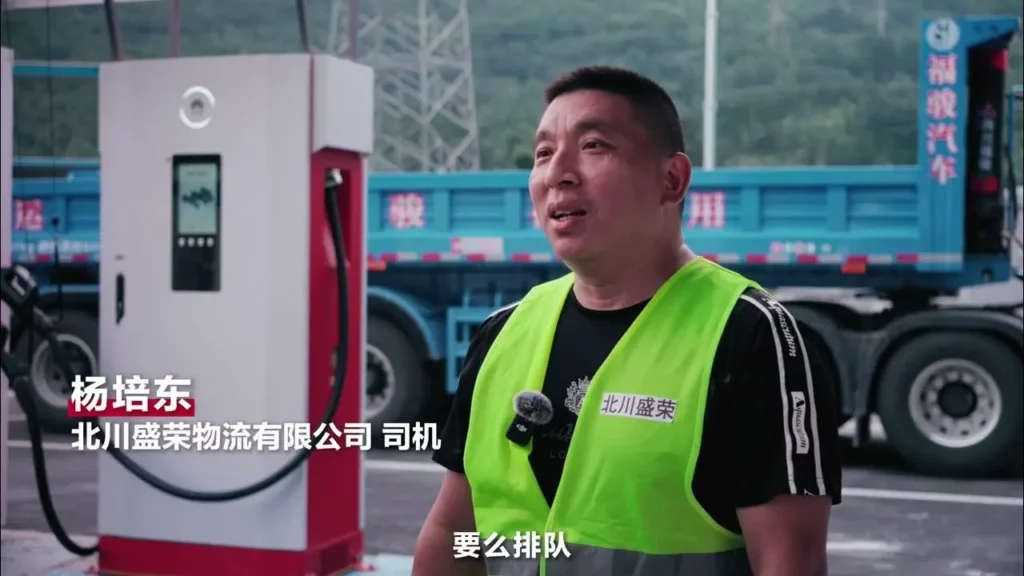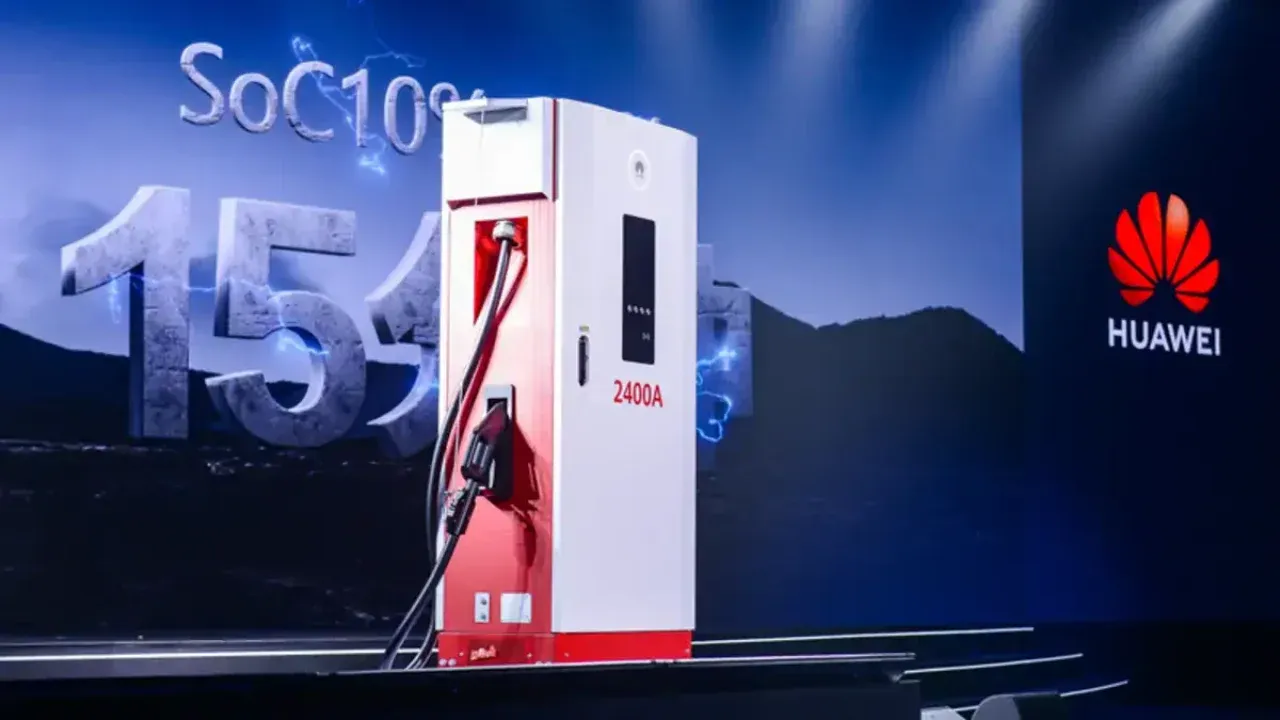Huawei, alongside its local partners, has opened the world’s first 100 MW truck charging station in Sichuan. With a setup capable of charging 700 electric trucks every day, the project is more than a tech showcase, it’s a statement about the future of heavy-duty transport.
100 MW truck charging station built for freight fleets

The massive facility combines 18 chargers rated at 1.44 MW and 108 chargers at 600 kW, each using liquid cooling for stability. Together, they deliver the strength to keep fleets moving without long delays. A short five-minute session can add 100 km of range, a breakthrough that addresses one of the biggest hurdles in electric freight logistics.
Energy independence at the 100 MW truck charging station
Huawei didn’t stop at charging hardware. The site includes a 1 MW solar parking canopy that generates clean electricity and a 215 kWh storage system to balance loads. Thanks to this hybrid setup, the station can partially run off-grid and even push surplus power back into the local network when demand shifts. Daily output surpasses 300,000 kWh, making it one of the busiest charging hubs in the world.
Cost, savings, and long-term benefits
The project cost about $21 million, but the potential savings for transport companies are huge. Switching to electric trucks in China can save operators up to $21,000 per vehicle each year when fuel prices are compared. In addition, faster charging infrastructure improves operational efficiency by around 15%, keeping trucks on the road for longer stretches with fewer stops.
Environmental impact of large-scale truck charging
The environmental payoff is equally significant. The solar setup alone produces about 5,000 kWh of clean energy daily. By enabling fleets to move away from diesel, the site could cut 45,000 tons of carbon emissions every year. For regions with heavy quarry and freight traffic, this means cleaner air and a quieter environment.
A glimpse into the future of transport
The opening of the world’s first 100 MW truck charging station signals where heavy freight is heading. Fast, high-capacity charging paired with renewable energy proves that even the biggest vehicles can go electric without compromise. For Huawei, it’s not just infrastructure, it’s the blueprint for the next era of logistics.
Key features of the 100 MW truck charging station
To highlight its scale, Huawei outlined several standout elements of the Sichuan facility. These details show why it sets a new global benchmark:
- 100 MW total capacity for heavy truck fleets
- 126 liquid-cooled chargers (18 × 1.44 MW and 108 × 600 kW)
- 5-minute sessions adding 100 km range
- Daily output of 300,000+ kWh
- 1 MW solar canopy and 215 kWh storage for hybrid energy use
- $21 million construction cost with potential $21,000 annual savings per truck














